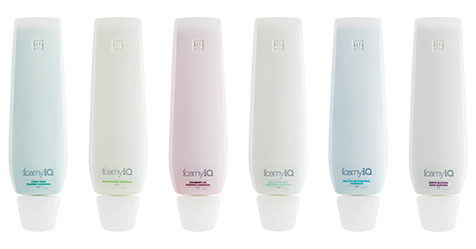According to the U.S. Centers for Disease Control and Prevention, “Hand hygiene is the first line of defense for the prevention of illnesses and spread of infection to others.” We should all know this. We should all be taught at home, in school, and at work how important this seemingly simple activity is. We need to have confidence and trust that individuals working in hospitals, restaurants, nursing homes, etc.—in short, anywhere where germs and disease are particularly dangerous and communicable—know how vital hand hygiene is and practice it consistently. But the reality is, achieving desirable levels of compliance doesn’t always occur.
Compliance matters
Increased compliance might be achieved if the hand wash/sanitizer is aesthetically pleasing insofar as the product feels or smells good, does not irritate the skin, and is easy to rinse off. Packaging and ease of use also affect compliance, which is related to the dispensers’ placement and functioning (manual vs. hands-free) in the work area. Other variables that impact compliance (or lack of it) include culture and workplace expectations, training and education, cost per use and safety-related factors. Of course, liability for non-compliance (hospitals, restaurants, etc.) makes the issue even more important when it impacts the bottom line.
Hand hygiene: True or False?
Alcohol (ethanol or ethyl alcohol) is a good active ingredient for a hand sanitizer.
True and False. Alcohol is established as a good antimicrobial, but alcohol in a hand sanitizer has its disadvantages. Alcohol hand sanitizers:
- Dry the skin.
- Are 60-95% alcohol, and are dangerous if used inappropriately
- In correctional facilities because of potential abuse;
- At home, as children have accidentally consumed them because of their appealing colors, fragrances and taste, leading to emergency room visits for alcohol poisoning;
- In numerous settings because of the flammability of the products.
Triclosan is a suitable antimicrobial to use in antiseptic washes.
False. The FDA has ruled that the risk of using triclosan as the active ingredient in consumer antimicrobial hand washes outweighs any benefits. Other active ingredients are equally effective. Why risk it?
Hand sanitizers are a good replacement for hand washing.
False. Soap and water are still the preferred method for cleaning hands. Hand sanitizers have reduced effectiveness on soiled hands.
15 seconds is long enough to wash your hands.
False. Washing hands for AT LEAST 20 seconds is recommended.
Coronavirus/COVID-19
Hand washing is the single most important action you can take. Disinfecting surfaces is helpful but secondary to hand hygiene.
Both alcohol and benzalkonium chloride are FDA acceptable active ingredients for hand sanitizers. When properly formulated, like Spartan’s Lemon Blossom Hand Sanitizer, benzalkonium chloride hand sanitizers have broad spectrum efficacy.
While antimicrobial hand washes are fine to use, plain soap and water are all that is needed to reduce the amount of virus on your hands. The physical action of washing removes many of the microorganisms on your hands.
Solutions at hand
By Ronald A. Barnhart, a chemist at Spartan Chemical. He is a Personal Care and Antimicrobial Formulation Scientist, with 25 years of experience.

It bears repeating: Hand hygiene is the first line of defense for the prevention of illnesses and spread of infection to others. Spartan Chemical Hand Hygiene products are Triclosan-free. (Please see SDS documents for the entire product line here.) foamyiQTM is an innovative hand hygiene system that eliminates the cost and time associated with broken or empty dispensers. The patented dispensing cartridge is the result of years of research, customer feedback and product engineering. By design, there are no costly dispensers to install, maintain or repair. And no refilling is necessary. When foamyiQ is empty, simply remove it from the bracket, and snap on a fresh, new one. It’s as simple as: Attach, Deplete, Repeat.
Through Spartan Chemical, proper hand hygiene can be encouraged by using their professionally designed visual aid reminders for various work/education/living situations. These are trilingual (English, Spanish, French.) The company’s CleanCheck® training program helps employees learn proper techniques and habits in sanitation-critical locations.
And finally, hand hygiene is so important that the CDC has declared May 5 as World Hand Hygiene Day. Simply put, hand hygiene saves lives.



